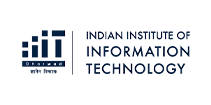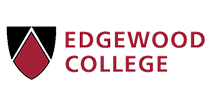What Comes After B.Com? The Ultimate Guide to Career-Building Courses in 2025
You have unlocked a milestone by earning the B.Com degree and learning the business, accountancy and management skills! This achievement not only marks a milestone in your academic life but also opens the question: What comes next? Many graduates spend some of their time thinking about this equally loaded topic as they try finding their way to fitting employment opportunities in this era of ever-changing challenges and prospects.With the emerging changes in modern business, 2025 is going to bring plenty of career opportunities for graduates. But, in order to survive and being the best in this competitive world, you must need to keep your skills under check. For this, the above listed courses are the good option to upskill yourself and match the evolution of the world.
This ultimate guide will focus on the most suitable courses and other career-building endeavors to aid in the sharpening of a person’s skills and their later set career goals. From advanced professional certifications to professional ‘hands on’ training courses, we cover the wide range of options for B.Com graduates wishing to step up the career ladder.
Why Further Education Matters After B.Com

Gaining more qualifications after a Bachelor of Commerce (B.Com) can offer multiple important benefits which will be useful academically and professionally:
- Specialized Knowledge: Education is important because it helps broaden your knowledge horizon to include specific sectors of interest like finance, marketing, human resources or others. The specialized knowledge gives you plenty of time to dedicate your focus at one subject or field, which can make you expert in your subject, hence increasing the chances of better career path.
- Career Advancement: Getting a post graduate degree increases the chances of securing a better place in the corporate world as these people have more skills than the graduates. It is a well-known fact that employers have a preference for candidates with advanced degrees or even additional qualifications because it means there is potential of growth, and the candidate understands what the subject matter entails. This creates pathways for promotions into higher roles with expectations for more responsibilities.
- Networking Opportunities: Education is a great chance to meet new people who are in the same professional field and at the same level. This can be helpful in creating an intensive professional network can create collaborations, guides, and job references which are core to refine career paths.
- Personal Growth: Getting a postgraduate degree increases your potential to perform well as it provides you advanced skills. This leads to personal and professional growth of an individual and boost their confidence to perform in the corporate culture. Skills like problem-solving, decision-making, creativity can be done with these professional degrees.
In short, it is gaining more education that will help you have a greater chance in succeeding in your career after finishing your B.Com degree.
Top Career-Building Courses to Pursue After B.Com in 2025
Master of Business Administration (MBA)

Overview
An MBA is among the most popular and highly demanded programs, especially for individuals who are holders of a B.Com degree. This postgraduate program has so many disciplines in which an individual can specialize. Some of the common areas of focus include finance, marketing, human resources, and operations management. The primary objective of the program is to enable students to acquire business skills and knowledge that are relevant in the real world of business in today’s world. Along with, it is also offered in an online mode, which can be pursued without quitting your job or relocate to a particular place.Benefits
- Broader Career Opportunities: Gaining an MBA greatly increases the availability of job opportunities as it enables access to various types of leadership roles in different fields. Graduates are usually ready to step into leadership roles that are more strategic and involve a lot of decision-making.
- Higher Salary Potential: One of the best parts about getting an MBA is the prospect of a higher paying job. This means for those that have an MBA, their earning potential is greatly increased making it a valuable investment.
- International recognition: An MBA is regarded not just at home but abroad as well. This international recognition adds to the value of the degree making it possible for graduates to take their skills to other countries and cultures. This degree helps you gain perspective from outside your country which is especially useful in today’s business environment.
Chartered Accountancy (CA)

Overview
A career as a Chartered Accountant (CA) is one of the best options for someone passionate about working in the areas of accounting and auditing. This path is rather rigorous; it requires one to undertake extensive training, complete complicated courses, and pass tough exams, but the pay-off is lucrative as CAs get employed in various prestigious positions in the financial industry as well as other fields. Appearances aside, the path towards becoming a CA requires an in-depth understanding of core accounting concepts in addition to gaining core competencies in finance and financial planning, as well as business strategy.Benefits
- High Demand: CAs are continuously on demand around the world with public accounting, corporate firms, taxation, and even advisory services. This means that there will always be job availability in either small businesses or large organizations.
- Lucrative Packages: It is indeed a well-paying profession and even comes with the potential for bonuses that are tied to individual performance. With better work positions and careers comes even better pay, which will be the case as self-employed CAs gain more experience.
- Professional Prestige: Achieving the status of Chartered Accountant earns one professional prestige. CAs are trusted financiers who deeply undertake responsibilities that affect organizational finances. His or her clients and even fellow practitioners have great respect for the profession.
Company Secretary (CS)

Overview
A Company Secretary is a vital role within an organization, ensuring that the entity adheres to all legal and regulatory requirements that are applicable. This position is crucial for maintaining effective corporate governance and ensuring that the organization operates within the bounds of the law while fulfilling its obligations to stakeholders. The responsibilities of a Company Secretary can include organizing board meetings, maintaining company records, and advising on various legal and compliance matters.Benefits
- Strategic Role: A Company Secretary plays an integral part in corporate planning and strategy development, contributing valuable insights that help shape the direction of the organization. Their expertise is often needed in decision-making processes, making them key players in the company's success.
- Legal Expertise: By working in this role, individuals gain extensive knowledge of corporate laws and regulations, which can be beneficial both for personal growth and for the organization's legal standing. This expertise also allows them to navigate complex legal scenarios effectively.
- Career Stability: There is a consistent demand for professionals in the field of Company Secretarial practice, providing an assurance of career stability and opportunities for advancement. The role is increasingly recognized as essential in businesses of all sizes, leading to a steady stream of job openings and career development prospects.
Certified Management Accountant (CMA)

Overview
In terms of professional value, the CMA certification has a heightened focus on financial planning and management, making it much sought after. Also, this program is most appropriate for those looking to make headway in the management accounting profession because it prepares them for the challenges of the profession.Benefits
- Global Credential: The most important merit of pursuing a CMA is the use of designation on a global platform. This kind of credential provides an edge to practitioners of management accounting in any country and industry, thus facilitating career development opportunities.
- Strategic Skills: The CMA scheme of work prepares students for productive management which is necessary for organizational decision making and business strategy formulation. These skills are very important in ensuring an organization is successful in a competitive environment’s complex financial setting.
- High Earning Potential: CMA graduates are the professionals, which help them get better salary hikes. This knowledge cannot be earned by anyone out there which helps the individuals get fancier and better positions at their workplace. Because of the professional position at their workplace, they get better and higher salary packages.
Digital Marketing Certification

Overview
As businesses continue to evolve and increasingly transition into the digital realm, the demand for expertise in digital marketing has surged significantly and is now regarded as a highly sought-after skill set. Comprehensive courses in this field encompass a wide array of topics, including search engine optimization (SEO), search engine marketing (SEM), content marketing, social media marketing, and various other essential components of digital strategy that are crucial for success in today's marketplace.Benefits
- Growing Field: The digital marketing sector is experiencing exponential growth, leading to a high demand for qualified digital marketing professionals who can navigate the complexities of online promotion and engagement effectively.
- Flexibility: The digital marketing landscape offers numerous opportunities for freelancing or remote work arrangements, allowing professionals to enjoy a greater degree of flexibility in their careers and work-life balance compared to traditional office environments.
- Creative Outlet: Engaging in digital marketing provides a unique opportunity for individuals to express their creativity through innovative campaign strategies and compelling content, fostering a dynamic environment where original ideas can flourish and captivate audiences.
Data Science and Analytics

Overview
Data science is an interdisciplinary field that merges statistics, programming, and domain expertise into one to analyze large and complex data. Data science could be a good fit for you if you are interested in business intelligence and the sectoral applications of data deaccessioning.Benefits
- High Demand Skills: The skill set of a data scientist is in demand across the job market making them most sought after by employers in need of well-educated professionals.
- Diverse Opportunities: Data scientists are able to find diverse employment opportunities in virtually all sectors, including but not limited to finance, health care, technology, and others.
- Innovative Field: As part of this innovative field, one has the opportunity to partake in new technological developments and solutions which makes one a contributor in shaping the future.
Financial Risk Manager (FRM) Certification

Overview
For someone aiming to become a risk manager, the FRM certification is a perfect fit. It has a very broad scope as it includes areas such as market and operational risk analysis, credit risk management, and even investment strategies. This certification arms people with the necessary tools needed to combat risk in the financial world effectively.Benefits
- Focused Knowledge: This particular program touches upon anything and everything related to financial risk management. In the end, a candidate is guaranteed to come out with well-rounded and specialized knowledge in the subject.
- International Acceptance: Financially centered institutions all around the world recognize this certification, thus increasing the value of FRM holders and giving them a competitive edge in the job market.
- Career Growth: The FRM certification allows for virtually limitless opportunities of career growth in major financial institutions as it is very much possible to rise to higher positions in risk management.
Certified Financial Planner (CFP)

Overview
People aspiring to pursue a career in personal finance planning will benefit from getting accredited as a CFP. This certification covers numerous topics required for financial planning which include, but are not limited to retirement planning, tax planning, estate planning, and insurance. The professionals who receive this certification will be capable of anticipating and navigating the financial landscape into which their clients are headed.Benefits
- Credibility: The certification is marked with excellence and is widely recognized as a prestigious mark in the field by peers and clients which adds to the credential of the professional.
- Client Trust: A CFP facilitates clients in trusting the professional more easily in the search for appropriate financial guidance and able to follow appropriate protocols.
- Diverse Opportunities: A professional who has been accredited as CFP has the option to work as an independent practitioner or as a part of an established financial firm which provides ample opportunity.
Actionable Tips for Choosing the Right Course
- Identify Your Interests and Strengths: Begin by thoughtfully assessing the subjects or tasks that you find most enjoyable and engaging during your B.Com studies. Reflect on the topics that captivate your attention, as well as the activities that make you feel accomplished and motivated. By pinpointing these areas, you can gain valuable insight into your personal strengths and preferences, which will ultimately guide your decision-making process.
- Research Market Demand: Take the time to thoroughly investigate the current job trends and future projections for various fields within the business sector. Understanding the demand for specific skills and professions will help you make informed choices about your career path. Look into industry reports, labor market analyses, and expert predictions to gather relevant information that can shape your future professional endeavors.
- Consider Long-Term Goals: It is essential to contemplate where you envision yourself in the next 5 to 10 years. Think about your aspirations and the type of career you wish to pursue, ensuring that you select a course that aligns with those long-term goals. This forward-thinking approach will not only help you choose the right educational path but also motivate you to stay focused and committed to achieving your desired outcomes.
- Evaluate Course Content and Duration: Take the time to compare the syllabus, duration, and flexibility of various courses offered in your field of interest. Assessing these factors will enable you to identify a program that not only fits your schedule but also matches your preferred learning style. Consider whether you prefer a more intensive course or one that allows for a slower pace, as well as how well the curriculum aligns with your career objectives.
- Seek Advice from Professionals: Connect with industry professionals or academic advisors who can provide valuable insights and recommendations based on their real-world experiences. Engaging in conversations with individuals who have successfully navigated the paths you are considering can offer guidance that is both practical and inspiring. Their perspectives can help clarify your options and provide a clearer understanding of what to expect in your chosen field.
- Check Accreditation and Reputation: Finally, ensure that the institution offering the course is accredited and holds a strong reputation within the industry. Research the institution’s credentials, faculty qualifications, and alumni success stories to confirm its credibility. A well-regarded program can significantly enhance your education and improve your employability in a competitive job market.

Conclusion
Making the decision on which course to pursue after your B.Com can most certainly shape your career. An MBA will give you an understanding of how business works as a whole, while more specialized professions such as CA or Digital Marketing offer certification courses tailored to very specific industries.Try speaking to your peers in the industry and conducting a little bit of research to find out what your specific interests are and what skills are in demand at the market. Keep in mind that as the job market continuously evolves, skill acquisition will always be required no matter which course you choose.
Are you looking to advance your career? Check out our wide variety of courses at best universities at collegesathi.com and take the first step towards building a future-proof career. See how easy that was? And make sure to pass along this help to any B.Com graduates that are unsure of what to do next!
Frequently Asked Questions
1. Is it necessary to pursue higher education after B.Com?It is not compulsory to pursue higher education, but it is surely beneficial for you to consider postgraduate programs or other certifications to increase your skills and enhance your value in the job market.
2. Does Online MBA a good option after B.Com?
Certainly, pursuing an online MBA degree will save you time and provide you the flexibility to manage other things like your job and personal commitments. Also, it will cost less expensive in relation to the traditional MBA.
3. What is the difference between CA and CMA?
CA focuses on aspects of accounting, auditing, and taxation. CA stands for chartered accountant. CMA stands for Certified Management Accountant and deals more with financial planning, management, and strategy decision making. Both are greatly esteemed.
4. Are online courses a good option for B.Com graduates?
Yes, it is quite possible. Online courses allow easy access as well as flexibility to pursue top-notch education without moving. A lot of reputed institutions provide online MBA, digital marketing certificates, and other qualifications meant for working individuals.
5. What are the job prospects for Digital Marketing Certification holders?
With the expertise provide by the digital marketing certification, you can grab different creative jobs like SEO specialist, content creator, Social media manager, content strategist, etc.
6. How long does it take to complete a Chartered Accountancy (CA) course?
The CA generally takes 4.5 to 5 years to complete, including examination and article-ship. But it also depends upon your ability.
7. Is Data Science a good option for B.Com graduates?
Indeed, provided you are interested in working with and analyzing data, the field of Data Science guarantees plenty of well-paying jobs in different sectors.
8. What certifications are internationally recognized after B.Com?
CMA, CFA and FRM are some examples of certifications that are accredited internationally and can aid you in getting a job overseas or at international firms.
9. What skills should I focus on developing after B.Com?
In today's world, financial analysis, strategic planning, leadership skills, effective communication, and some amount of technical proficiency in data science or digital marketing are some of the most sought after skills.
Trending Posts
-
IMT CDL Ghaziabad: All You Need to Know About the Institute in 2025
-
Top 5 Online MCA Colleges in India in 2025
-
Top IIMs in India 2025: Which One is Best for You?
-
Jain Online University: Courses, Benefits, Fees, Admission Fees
-
15 Top Online MBA Colleges in India in 2025
-
Top 11 Affordable Online MBA Colleges in India in 2025
-
Understanding NIRF Rankings: Significance, Impact, and Future Scope
-
Online Education vs. Distance Education: Benefits and Limitations
-
NMIMS Online University: Why it is the Right Choice for You?
-
The Benefits of Choosing JAIN University’s Online MBA for Career Advancement
-
Affordable Excellence: Top Online MBA Universities Around 1 Lakh
-
Calculate Your Age Instantly: The Best Age Calculator Guide
-
What Comes After B.Com? The Ultimate Guide to Career-Building Courses in 2025
-
Trending and High-Impact MBA Project Topics You Should Consider
-
Career-Oriented Courses after 12th Arts: A Complete Guide






























































